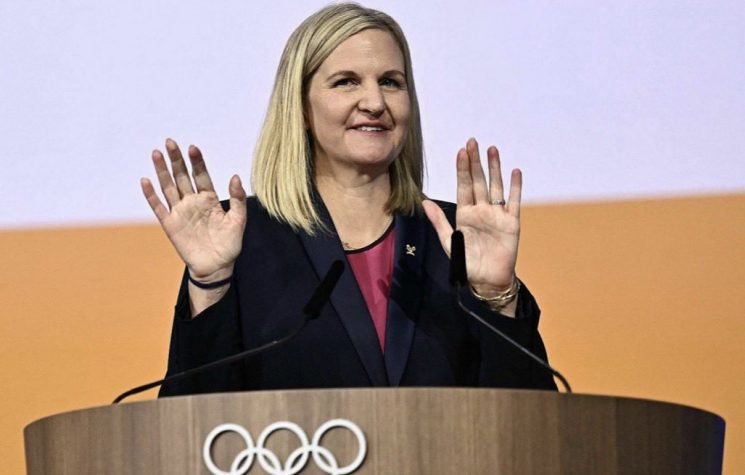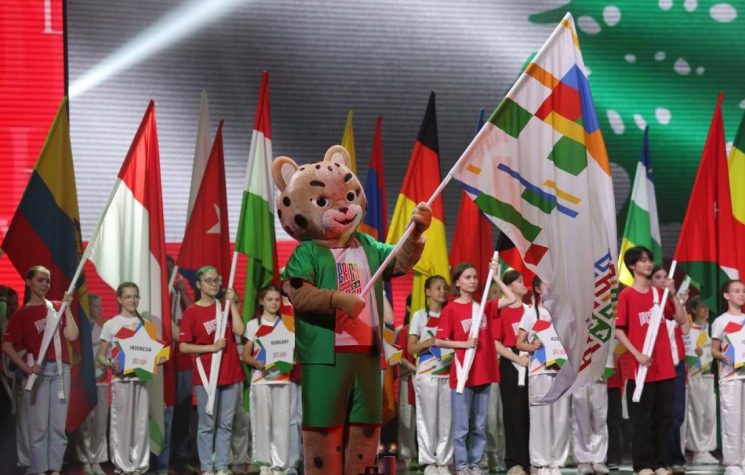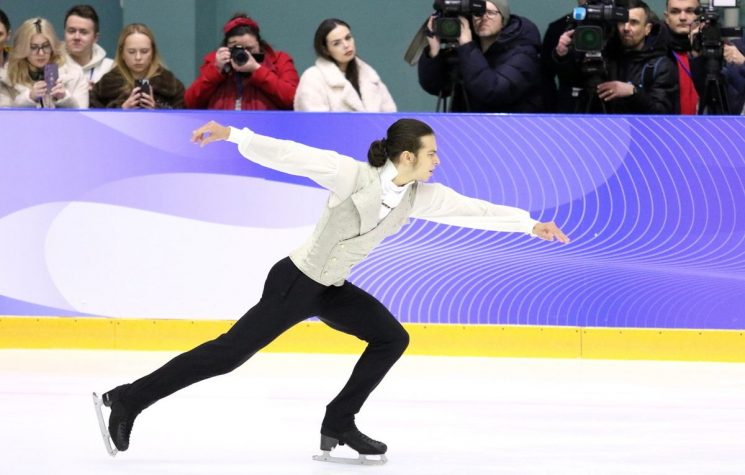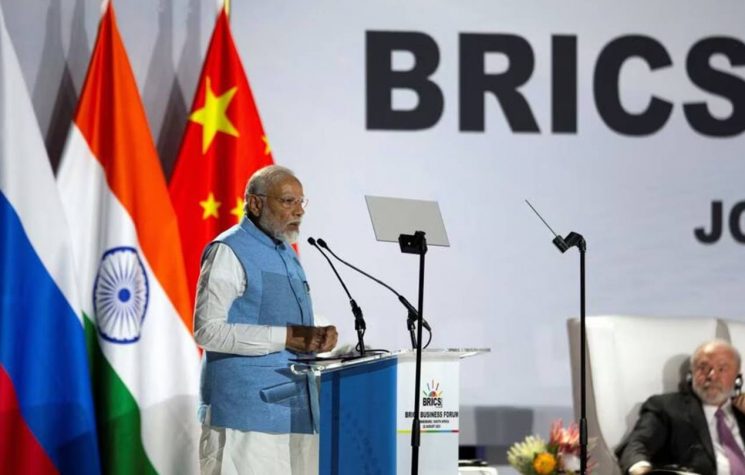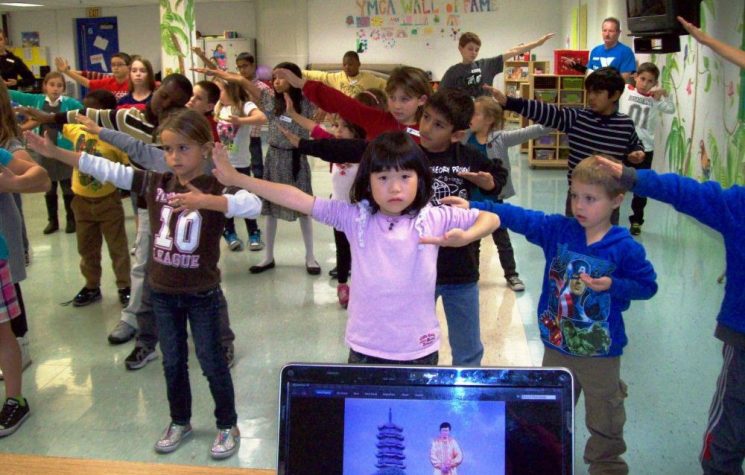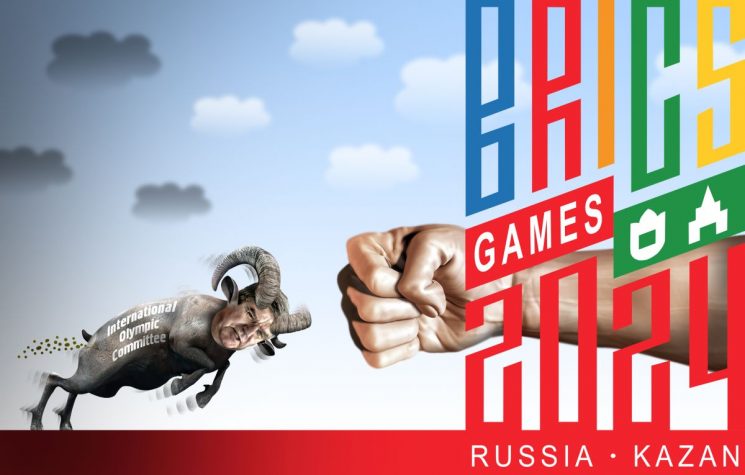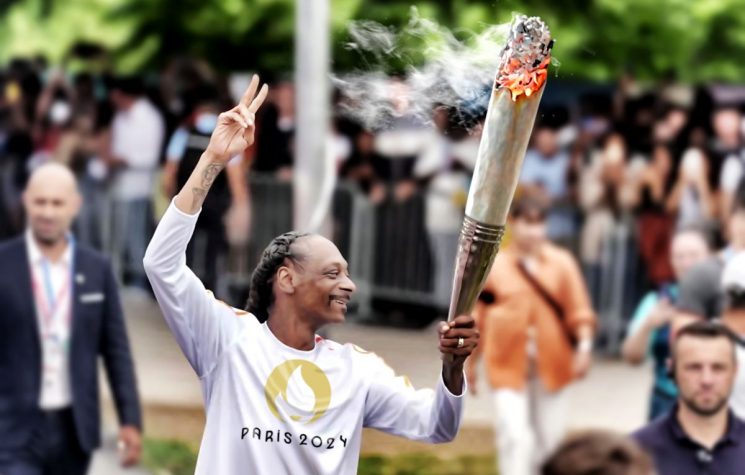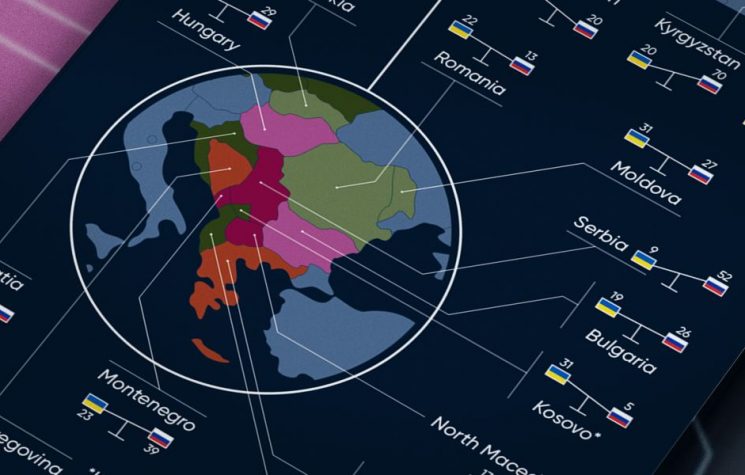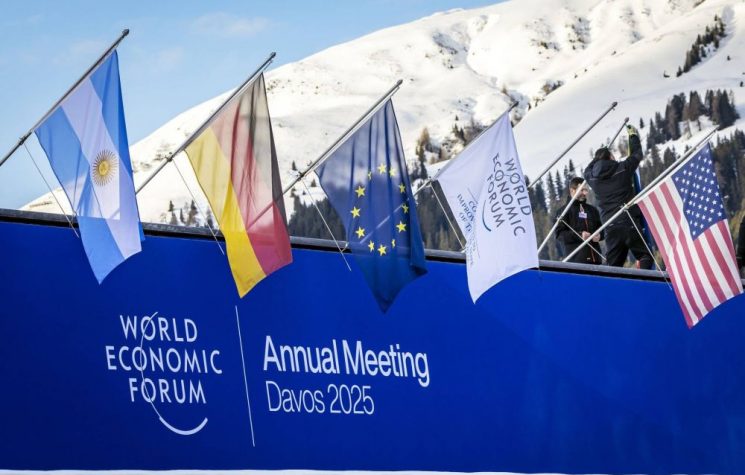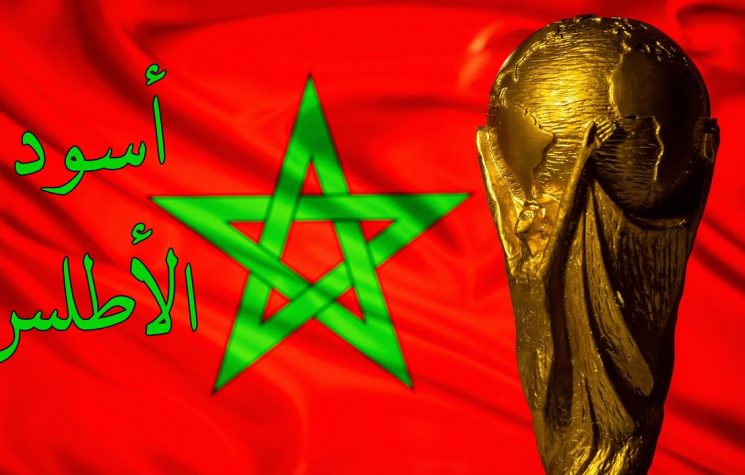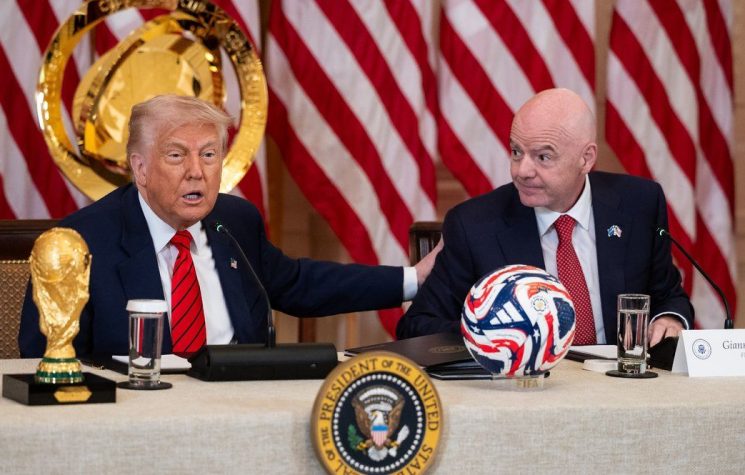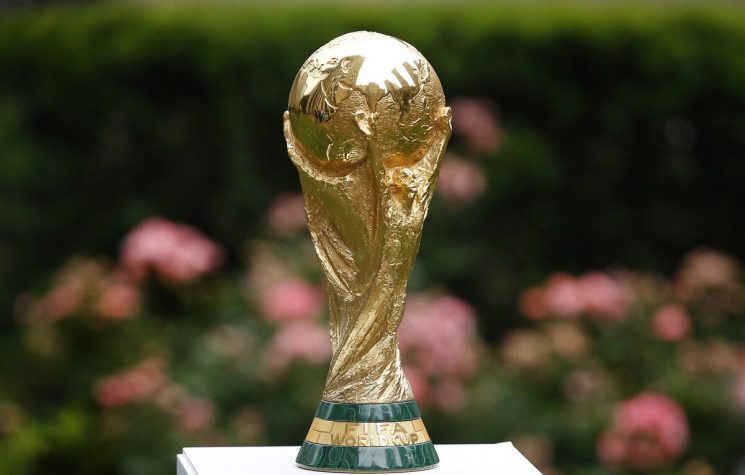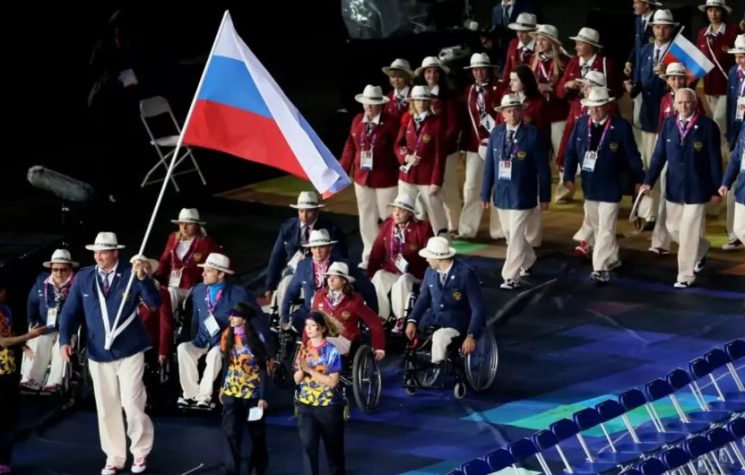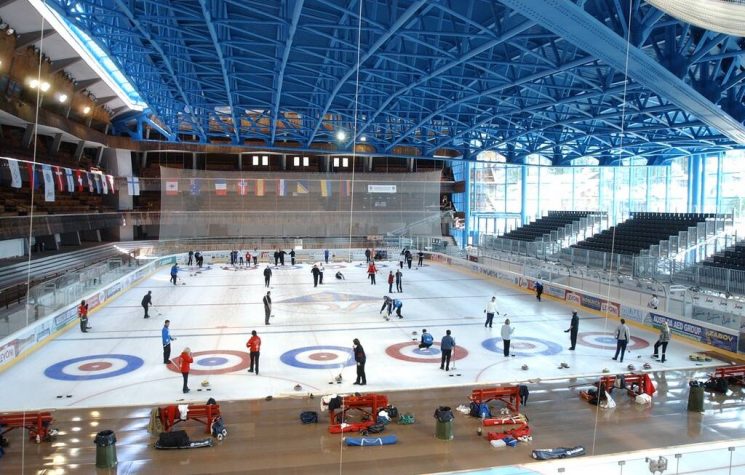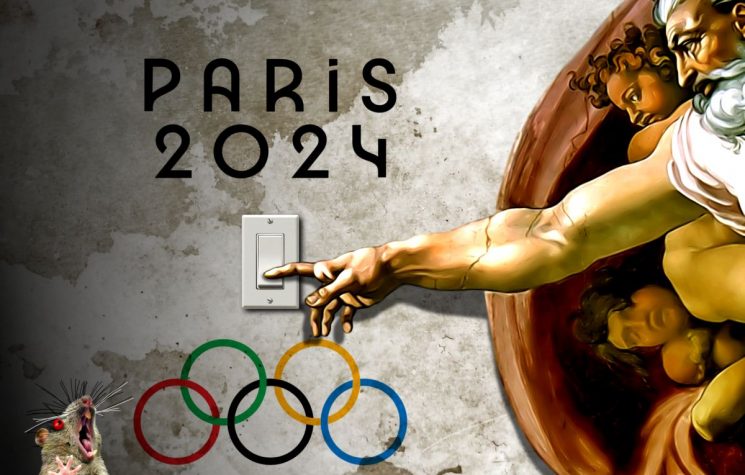More eyes would turn to the Russian and Chinese companies that act as technological anchors for Kazan and less profits will be available for AirBnB, CocaCola, Procter & Gamble, Toyota, Panasonic, Samsung and Visa and the other suckers underwriting Paris 2024.
❗️Join us on Telegram![]() , Twitter
, Twitter![]() , and VK
, and VK![]() .
.
Contact us: info@strategic-culture.su
This year’s BRICS Games are scheduled to be held from 11-24 June in Kamila Valieva’s home town of Kazan. And, though Valieva is the brightest jewel in Kazan’s sporting throne, she is far from the only one. Retired skater and winner of umpteen Olympic medals Evgenia Tarasova also hails from Kazan, as does artistic gymnast Aliya Mustafina and a bunch of other top Russian athletes we need not concern ourselves with here. Let’s hope the organisers give them and all of Kazan’s other jewels their well-deserved day in the sun, even if Valieva’s chosen art form is not currently in their schedule, which is of interest in its own right for a number of important reasons.
First off, though the range of sports seems relatively limited when compared with the summer Olympics, many more sports are on offer than was the case when these games were last held in China, which was then operating under very restrictive Covid lockdown conditions. Further, as these games were only established as recently in 2016, the future is theirs, if they can only establish their particular market niche. Kazan offers the BRICS countries an opportunity to make their mark in a variety of important ways.
Though showcasing Valieva but also Mustafina and Tarasova would send a message to the world’s sporting bodies that Russia’s finest will continue to exude greatness, it will also send a message of hope and inspiration to all the young Russian, Chinese and other gymnasts and skaters who are lucky enough to either visit Kazan in person or to simply watch them on MatchTV, which has secured the franchise to broadcast the Games.
And not just gymnasts and skaters. As the Kazan Games also include such traditional sports as Greco-Roman wrestling, boxing and weight lifting, Kazan offers the BRICS countries a chance to re-invigorate those traditional games, which are struggling for sponsors in the West because they are not profitable enough for the gangsters who run NATO’s sporting bodies.
Although acrobatic rock n roll, beach volleyball and breakdancing are included in the schedule, that is to miss the point that these games, with folk like Valieva at the helm, offer the greatest of opportunities to connect back to the grassroots, to those Mongolian kids who practice wrestling in their down time as well as Chinese, North Korean and Iranian weightlifters, whose sport can be also traced all the way back to the original Olympics of ancient Greece.
Though Russian Sports Minister Oleg Matytsin has made the point that “the capital of Tatarstan has extensive experience in holding sporting events at the international and all-Russian level, as most recently Kazan successfully hosted the first-ever ‘Games of the Future’ competition,” he missed the point when he declared that the BRICS Games are not meant to rival any other competitions and will not interfere with the international sports calendar as well as with the IOC-approved calendar of events.
Although that might be the objective reality, it is not one that is shared by NATO, which wants to break the spirit of Valieva, as well as all other Tatars and Russians who, NATO’s spoilsports insist, must be deplatformed along with their international friends and allies. If Mongolians want to wrestle each other in their school yards or if Valieva wants to skate on a frozen lake in the middle of nowhere, that is ok with NATO, as long as it does not interfere with their business models, much of which factors around making the Olympics and similar circuses commercial successes.
Let us first of all recall that the 1984 Los Angeles Olympics, where the Soviet Union did not compete, was an unprecedented commercial success and that Los Angeles will again be hosting the Olympics in 2028 where the objective of making coin will remain the organisers’ overriding concern.
Given that Association of Summer Olympic International Federations (and second rate tennis player) President Francesco Ricci Bitti has warned Russia against any “very contentious” plans to stage rebel events outside of the Olympic Movement, we must note what is at stake not only for Bitti’s crew but also for the technological companies they depend on.
The modern Olympics cannot work without world class technological companies ensuring there are no technical glitches with time keeping, simultaneous broadcasts and very much more. It was, for example, a major feather in Japan’s cap that the 1964 Olympics were such a technological success. Though this is more of a problem in the sub zero conditions of the winter Olympics that Valieva excels at, imagine if the BRICS Games go without a hitch and Paris turns out to be the rat infested technological nightmare it is shaping up to be.
More eyes would turn to the Russian and Chinese companies that act as technological anchors for Kazan and less profits will be available for AirBnB, CocaCola, Procter & Gamble, Toyota, Panasonic, Samsung and Visa and the other suckers underwriting Paris 2024.
And, although Paris 2024’s website has some babes dressed as Athenian chics of 2000 and more years ago, NATO’s sporting model is more akin to that of the Emperor Nero than the one the Spartans, the Peloponnesians and the rest of them competed in. Nero, the historians tell us, won an impressive seven gold medals at a variety of events, some traditional and some not so traditional, because the organisers did not want to be fed to the lions at circus time if they did not humour the Uncle Sam of their era. Nero, in that respect at least, was ahead of his time because the United States would like for its competitors to win any and all medals going so that its companies and those affiliated with them might reap the fruits of those garlands. That, at heart, is their driving force.
Sad to say, however, that just with the ancient Olympics which, with the Pythian, Nemean, and Isthmian Games, made up the Panhellenic Games, other models, the most famous of which are the Maccabiah Games aka the Jewish Olympics, are out there in the long grass. The relevance of the Maccabiah Games, in the context of the BRICS Games, is that legendary stars like Mark Spitz and Jason Lezak have found themselves pitted against others who were not quite in the same class. And, though nobody is in the same exalted class as Kamila Valieva, every single kid who aspires to skating greatness has a right to see her, and will hopefully see her and many more like her who aspire to be faster, higher, stronger in Kazan in June, as well as in the BRICS Games that follow. NATO and other spoilsports will just have to suck it up.










